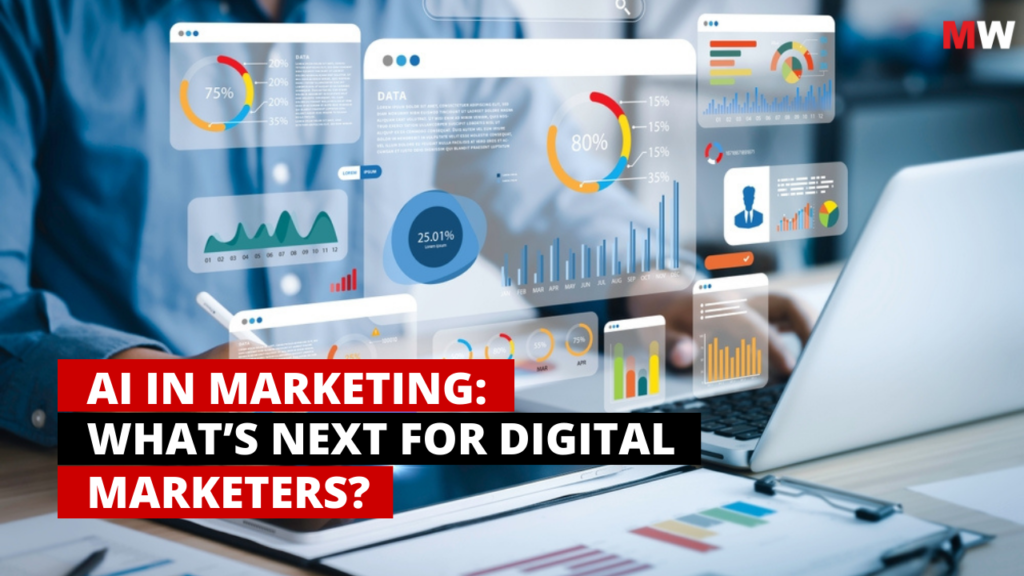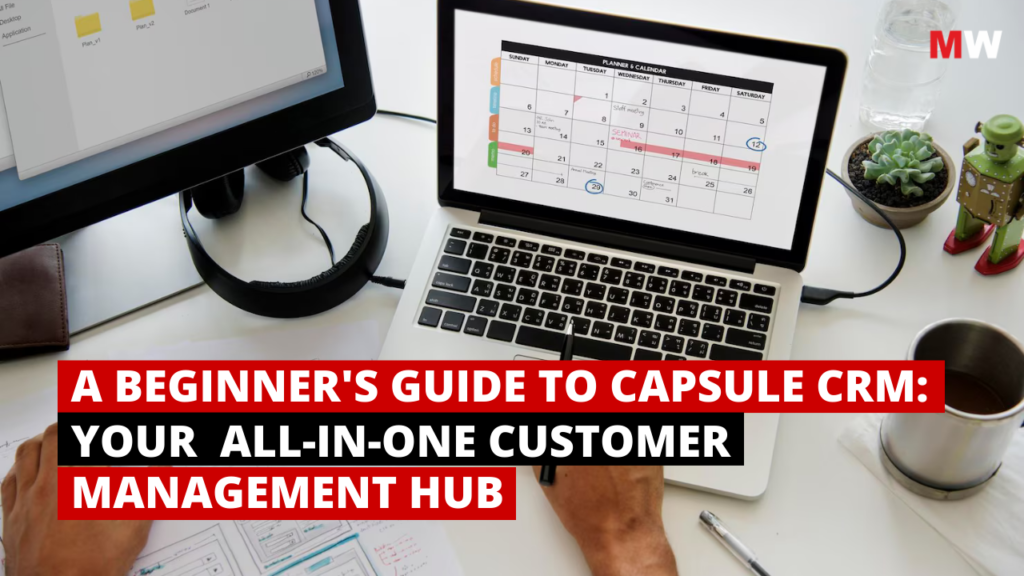How would you react if I told you that your customer interactions are being revolutionized in ways you never imagined? Brace yourself for some shocking truths. This blog will unveil mind-bending facts challenging everything you thought about digital marketing. From AI-driven insights to personalized content, prepare to be amazed by AI’s transformative power. AI in marketing optimizes spending, mines insights, and personalized content seamlessly, boosting marketing efficiency and enhancing customer journey personalization. Explore the profound impact and future prospects of AI in digital marketing for scalable, impactful outcomes.

The Evolution of AI in Marketing
Early Applications in Marketing
- 1950s-1960s: Foundational Techniques
During the mid-20th century, researchers utilized mathematical models like linear programming, game theory, and decision trees to optimize marketing strategies, particularly in pricing and marketing mix decisions. - 1970s-1980s: Expert Systems and Neural Networks
This era saw the introduction of expert systems and neural networks which enabled marketers to model customer behaviors and preferences more accurately. This period marked the beginning of personalized marketing, offering tailored recommendations and promotions to customers.
Digital Revolution and AI in Marketing
- 1990s-2000s: Internet and E-commerce
The rise of the internet and e-commerce platforms expanded data collection and analysis capabilities. This period significantly transformed marketing with the advent of online advertising and targeting strategies. - AI Tools for Online Engagement
Marketers began employing AI tools in marketing such as web analytics, search engine optimization (SEO), and email marketing to enhance online customer engagement and reach.
Advanced AI Implementations
- Programmatic Advertising and AI Algorithms
By 2014, programmatic ad buying had been popularized, streamlining the ad buying process by utilizing AI in marketing to automate the selection of target markets and manage budgets effectively.
Additionally, Google’s introduction of RankBrain in this period helped in interpreting user search intent, thereby refining search results and improving user experience - AI in Marketing and Consumer Electronics.
The launch of devices like Amazon Echo and Google Home in 2016 incorporated speech recognition, opening new avenues for AI in marketing through voice-activated interactions.
- Custom AI-Driven Advertisements
Recent advancements have seen AI influence the creation of advertisements themselves, with platforms like Google and Facebook using consumer data to craft ads tailored to individual preferences.
Statistical Insight
- Current Adoption Rates
As of recent studies, 37% of organizations have implemented AI in some form, reflecting a 270% growth in AI adoption over the past four years 4. This statistic underscores the accelerating integration of AI technologies in marketing strategies across various industries.
Key Benefits of AI in Digital Marketing
AI marketing tools revolutionize the industry by harnessing vast amounts of data to create personalized strategies. Through machine learning algorithms, these tools analyze customer behavior, enabling tailored recommendations and targeted advertisements. Predictive capabilities anticipate customer needs, ensuring the right product reaches the right audience at the optimal time.
Moreover, AI-powered automation streamlines tasks, allowing marketers to focus on strategic initiatives. In social media management, AI tools extract crucial details from data sets to measure sentiment and predict future actions. Tailored content enhances engagement and market share, transforming consumer interactions.
Projected to influence 45% of the global economy by 2030, AI-driven marketing reshapes demand. Machine learning and natural language processing provide precise insights into customer experiences, even decoding colloquialisms or emojis. Additionally, AI enhances content creation, producing highly personalized consumer content and refining digital marketing strategies for improved outcomes.
AI-Driven Marketing Tools and Their Impact
AI-driven marketing tools are revolutionizing the digital landscape by offering sophisticated solutions that cater to a variety of marketing needs. Here’s how these tools are making a significant impact:
Chatbots and Customer Interaction
AI-powered chatbots are enhancing customer support by providing personalized interactions. They gather crucial data for lead generation and analysis, significantly boosting engagement and customer satisfaction.
Advanced Image and Video Recognition
AI technologies identify objects, people, and other elements in images and videos. This capability supports automated tagging, enhances search functionality, and drives personalization and creative processes across digital platforms.
Fraud Detection in Digital Marketing
AI algorithms are crucial in detecting anomalies, which helps businesses prevent fraud in their digital marketing activities. This application is vital for maintaining the integrity and security of online marketing campaigns.
Enhancing User Experience (UX) Design
AI and UX design are closely linked, providing endless opportunities for creative and effective problem-solving in digital marketing. AI algorithms analyze user data to enhance digital product personalization, streamline the design process, and improve user testing and prototyping.
Sophisticated Customer Segmentation
AI-driven tools leverage advanced algorithms to analyze large data sets, uncovering intricate psychographic and behavioral patterns. This allows for more targeted marketing strategies and improved customer understanding.
Predictive Content Creation
AI excels in decoding user behavior, interests, and preferences, enabling the creation of content uniquely tailored to individual users. It anticipates the type of content that will engage users, making marketing efforts more effective and personalized.
By integrating these AI-driven tools, digital marketers can significantly enhance their strategies, leading to more effective and efficient marketing outcomes.
Overcoming Challenges with AI in Marketing
Addressing Data Quality and Integration Issues
- Enhancing Data Quality: To ensure AI in Marketing functions optimally, it’s crucial to maintain high-quality data. Investing in robust data management tools and processes can help businesses achieve clean, consistent, and accurate data, essential for precise AI-driven predictions and recommendations.
- Streamlining Integration with Legacy Systems: Many companies face challenges integrating AI with outdated legacy systems. Adopting flexible and adaptable technological solutions can facilitate smoother integration, allowing businesses to leverage AI capabilities effectively.
Tackling Human and Ethical Challenges
- Managing Resistance to Change: Resistance from employees towards AI can stem from fears of job displacement or changes in workflow. Addressing these concerns through clear communication about the benefits of AI, coupled with comprehensive training and support, can ease the transition and foster acceptance.
- Navigating Ethical Considerations: Privacy and data protection are paramount when implementing AI in marketing. Ensuring ethical use of AI technologies and adhering to relevant regulations and guidelines is essential for maintaining consumer trust and compliance.
Building Skills and Managing Resources
- Overcoming Talent Scarcity: The lack of skilled professionals to develop and implement AI solutions can be mitigated by investing in training programs for current employees and recruiting new talent equipped with the necessary AI expertise.
- Addressing Implementation Challenges: Implementing AI can be daunting due to technical complexities and resource constraints. Exploring various AI deployment models, collaborating with specialized AI consultancies, and enhancing staff training on AI tool usage are effective strategies to overcome these hurdles
Enhancing Trust and Data Collection
- Improving Trust and Transparency: Building trust with customers involves transparent communication about how their data is used. Complying with data privacy laws and demonstrating responsible data usage are critical steps in gaining customer confidence.
- Optimizing Data Collection: Insufficient or inaccurate data hampers AI’s effectiveness. Investing in comprehensive data collection and management practices ensures access to the necessary data for training AI systems, enhancing overall marketing strategy effectiveness.
The Future of AI in Digital Marketing
With global AI spending projected to reach $77.6 billion by 2022 and the business value of AI expected to hit $3.9 trillion, the future of digital marketing with AI looks incredibly promising As AI continues to permeate various business functions, 50% of companies have already embraced AI in areas like service operations, product development, and particularly in marketing and sales. This adoption is set to deepen, with the financial impact of AI in digital marketing estimated to surge from $100 billion to a staggering $2 trillion by 2030.
Key Trends related to AI in Digital Marketing
- Hyper-Personalization of Content: AI’s advanced data analysis capabilities will allow marketers to offer unprecedented personalization in content and user experiences.
- Sophisticated Conversational AI: Chatbots and AI-driven conversational tools will evolve to provide more nuanced and personalized user interactions.
- Dominance of Visual and Voice Search: The landscape of search is shifting towards visual and voice commands, reshaping how brands strategize their SEO and content delivery.
- AI-Enhanced Content Creation: Expect AI to play a major role in generating engaging and high-quality content across platforms, tailored to user preferences.
- Predictive Analytics in Decision-Making: AI will increasingly drive marketing decisions, helping predict market trends and consumer behaviors with high accuracy.
- Ethical Marketing Practices: As AI integrates deeper into marketing strategies, maintaining transparency and ethical standards will be crucial for brand trust and loyalty.
- Integration of VR and AR: Virtual and Augmented Reality will become more mainstream in marketing strategies, driven by AI advancements.
- Automated Real-Time Marketing Strategies: AI’s real-time analysis will enable the development of dynamic marketing strategies, reacting instantaneously to market and consumer behavior changes.
These trends highlight a future where AI not only enhances the efficiency of marketing strategies but also transforms how brands engage with their consumers, offering more personalized, interactive, and immersive experiences. As we look towards this future, the role of AI in digital marketing is set to be not just influential but truly transformative.
Conclusion
The integration of AI in digital marketing has become essential for crafting efficient and personalized strategies. AI’s evolution underscores its role in enhancing customer engagement, optimizing marketing efforts, and advancing targeted advertising and content personalization. From early applications to sophisticated AI-driven tools, its transformative potential for marketing is evident.
The future of digital marketing, powered by AI, promises hyper-personalization, advanced conversational interfaces, and real-time strategies. Embracing these advancements is crucial for staying ahead, ensuring strategies resonate with the evolving needs of digital consumers. AI signifies a shift towards more meaningful, data-driven engagements, setting a new benchmark for excellence in the digital age.
FAQs
What are the current trends in AI within digital marketing?
Artificial intelligence is revolutionizing digital marketing by providing tools like predictive analytics, chatbots, and the ability to generate personalized content. These advancements allow businesses to predict customer needs and behaviors, transforming marketing strategies to be more proactive than reactive.
In what ways does AI contribute to digital marketing?
AI contributes to digital marketing by automating repetitive tasks and fine-tuning marketing strategies, which helps cut labor costs and reduce unnecessary advertising expenses. This leads to an improved return on investment (ROI) for marketing campaigns, as AI ensures that marketing budgets are spent more efficiently.
What does the future hold for digital marketing with the integration of AI in marketing?
The future of digital marketing in the era of AI is geared towards an increase in hyper-personalization. With AI’s ability to process and analyze large data sets, marketers will be able to tailor their efforts to the individual preferences, behaviors, and demographic details of their target audience.
How is AI in digital marketing helpful?
AI in digital marketing is transforming the industry by enhancing the ability to optimize campaigns, target specific audiences with greater precision, and create content that is personalized for each user. One example of AI’s impact is programmatic advertising, which utilizes algorithms to purchase and place advertisements in real time, optimizing marketing efficiency.








